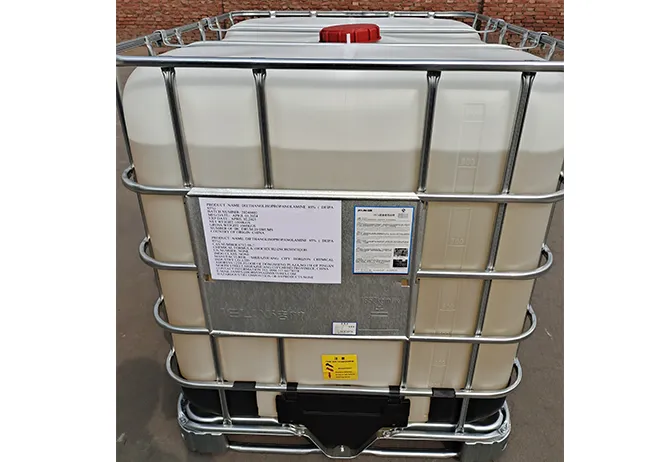
anti foaming agent in cooking oil
The Role of Anti-Foaming Agents in Cooking Oil
In the culinary world, cooking oil is an essential ingredient, used in a wide variety of dishes—from frying to baking. However, one common issue faced by chefs and home cooks alike is the formation of foam during cooking processes, particularly when frying foods. This foaming can lead to uneven cooking, spattering, and in some cases, dangerous flare-ups. To combat this issue, the use of anti-foaming agents has emerged as a practical solution. This article examines what anti-foaming agents are, how they work, and their role in cooking oil.
Understanding Anti-Foaming Agents
Anti-foaming agents, also known as defoamers, are substances added to cooking oils to minimize or eliminate the formation of foam. Foam is produced when gas bubbles become trapped in a liquid, disrupting the cooking process. This phenomenon can be particularly noticeable when oils are heated, as the release of steam and volatile substances can create considerable amounts of foam. Anti-foaming agents work by destabilizing the foam structure, leading to the rapid coalescence of bubbles and their subsequent collapse.
Types of Anti-Foaming Agents
There are several types of anti-foaming agents that can be used in cooking oils, including
1. Silicones One of the most common and effective classes of anti-foaming agents, silicone-based compounds reduce surface tension and promote bubble collapse. They are often used in commercial cooking oils.
2. Polyglycerol Esters These are derived from glycerin and fatty acids and are particularly effective in emulsified systems. They help control foam in sauces and dressings.
3. Fatty Acid Derivatives Certain fatty acids and their derivatives can act as anti-foaming agents by reducing surface tension, which inhibits foam formation.
4. Mineral Oils Some mineral oil derivatives can provide effective foam control due to their hydrophobic properties, making them suitable for specific cooking applications.
Benefits of Using Anti-Foaming Agents
The incorporation of anti-foaming agents into cooking oils offers several benefits
anti foaming agent in cooking oil

1. Improved Cooking Efficiency By controlling foam, anti-foaming agents allow oils to maintain a consistent temperature during frying or sautéing. This leads to even cooking and better flavor development.
2. Enhanced Safety Excessive foaming can lead to overflow and dangerous spattering. By reducing foam, anti-foaming agents can help prevent accidents in the kitchen, especially when using high-heat cooking methods.
3. Extended Oil Life Foaming can lead to degradation of oil quality over time. Anti-foaming agents help maintain the integrity of the cooking oil, prolonging its life and reducing waste.
4. Better Appearance and Texture For fried foods, reduced foaming ensures a better texture and improved appearance. Foods are less likely to become soggy or greasy, resulting in a more appealing final product.
Considerations When Using Anti-Foaming Agents
While anti-foaming agents provide numerous advantages, it is important for consumers and food manufacturers to be aware of certain considerations
1. Regulatory Compliance In many regions, food additives—including anti-foaming agents—must meet specific safety regulations. Users should ensure that the agents they are employing are approved for food use.
2. Concentration Levels The effectiveness of anti-foaming agents can vary based on their concentration in the cooking oil. It is important to adhere to recommended levels to achieve optimal results without altering the oil's flavor or properties.
3. Consumer Preferences Some consumers may prefer natural cooking oils without additives. For these individuals, exploring alternatives such as properly managing heat levels and using techniques to minimize foaming can be beneficial.
Conclusion
Anti-foaming agents play a significant role in enhancing the functionality of cooking oils. They contribute to improved cooking efficiency, safety, and product quality. As kitchens continue to evolve with advancements in cooking technology, the use of these agents will likely remain an important consideration for both home cooks and professional chefs. By understanding the benefits and implications of anti-foaming agents, culinary enthusiasts can make informed choices that elevate their cooking experiences.
-
Buy High-Quality Trichloroisocyanuric Acid for Sale | TCCA 90% SupplierNewsAug.30,2025
-
Pure Sodium Dichloroisocyanurate Dihydrate | Powerful DisinfectantNewsAug.29,2025
-
Industrial Chemicals: Quality & Purity for Every IndustryNewsAug.28,2025
-
Nitrile Rubber Honoring Strict Production StandardsNewsAug.22,2025
-
Aspartame Ingredients Honoring Food Safety ValuesNewsAug.22,2025
-
Fertilizer for Balanced Plant NutritionNewsAug.22,2025
-
Cyanide Gold Processing with High Purity AdditivesNewsAug.22,2025
Hebei Tenger Chemical Technology Co., Ltd. focuses on the chemical industry and is committed to the export service of chemical raw materials.
-

view more DiethanolisopropanolamineIn the ever-growing field of chemical solutions, diethanolisopropanolamine (DEIPA) stands out as a versatile and important compound. Due to its unique chemical structure and properties, DEIPA is of interest to various industries including construction, personal care, and agriculture. -

view more TriisopropanolamineTriisopropanolamine (TIPA) alkanol amine substance, is a kind of alcohol amine compound with amino and alcohol hydroxyl, and because of its molecules contains both amino and hydroxyl. -

view more Tetramethyl Thiuram DisulfideTetramethyl thiuram disulfide, also known as TMTD, is a white to light-yellow powder with a distinct sulfur-like odor. It is soluble in organic solvents such as benzene, acetone, and ethyl acetate, making it highly versatile for use in different formulations. TMTD is known for its excellent vulcanization acceleration properties, which makes it a key ingredient in the production of rubber products. Additionally, it acts as an effective fungicide and bactericide, making it valuable in agricultural applications. Its high purity and stability ensure consistent performance, making it a preferred choice for manufacturers across various industries.





